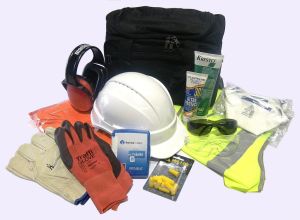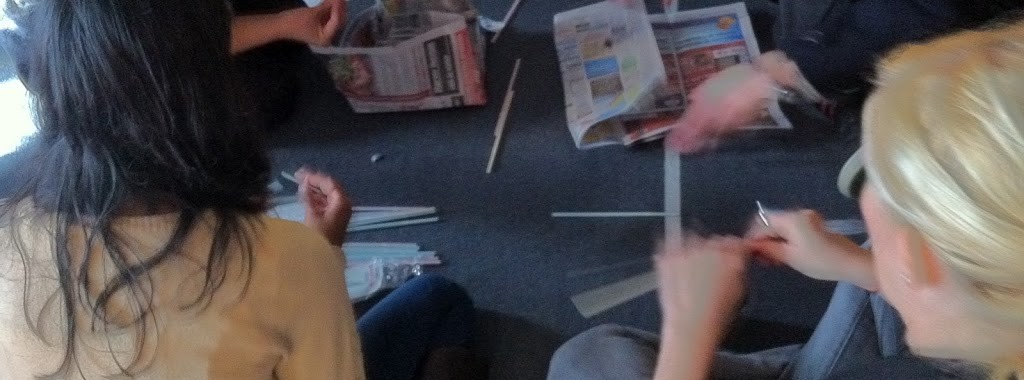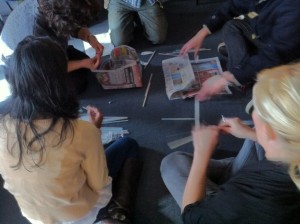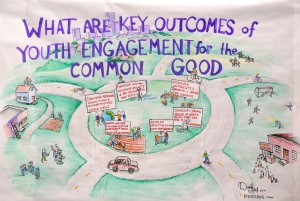Over the past two weeks I have spoken to a number of youth workers and all of these conversations have turned at one stage or another to the topic of how much they should share about themselves with their young people. Some of the comments that I have heard were, “if I was asked I would tell them that it was a personal question and our work is not about me”, “our sector is to friendly with our clients, we need to distance ourselves”, and “how much do I share about myself when trying to build relationship with my young people”. My conclusion is that if our business is building relationships with young people then youth work educators need to spend more time on how we develop these relationships and on our identity as a profession.
When I started in youth work I too was prone to these questions. With some young people I shared about myself and with others I shut them out. I had no framework for how to deal with this and like many others I just played it by gut feeling. When I began my studies I thought I would be given some clarity on how to answer this question. low and behold I got nothing. Not even a push in the right direction. I was frustrated that there was no clear lines of accountability! If those in the academy could not help then I guessed I would have to work it out myself.
To build a framework I asked colleagues, mentors even my supervisors about what to do. BAD IDEA!!! For every person I spoke to I had at least one new answer. Nothing was adding up. I read books and articles on professional boundaries. Basically they said don’t sleep with your clients or do anything illegal and you will be fine. I was ready to blow up. How was I going to work this out???
In the end I had to come up with a framework of my own. It has formed the basis for one of the Ultimate Youth Worker pillars of practice: deep engagement. Over the years I have copped a lot of flak for my framework. Some say that I am to open with my young people. Others say I am to closed. Whichever way you will lean I have put my stake in the ground and intend to continue with this model until I find something better.
Before I give you the framework let me set some context. This afternoon I was chatting with a youth worker who spoke of the way his organisation teaches youth work students. They base some of their work on the work of a New Zealand based organisation who teach that youth workers need to have both professionalism and community focuses in their work. It is loosely based on the idea of ‘Hapu’ or extended family. A concept that is very much in line with Victoria’s Child Safety Commissioner Bernie Geary who believes that community has a responsibility to support and raise our young people. The balancing act of being a ‘professional’ and yet being a community focused person is difficult… but I believe it is also the key to the best outcomes for our young people.
So I have started to let the cat out of the bag. However, balancing professionalism and a community/extended family mentality is not enough. To many of our young people we fill relational holes in their lives such as those left by parent, siblings and friends. How do we keep the balance when they are striving to become our best buddy??? Two streams of thought always enter my mind and have become the basis for how I balance this conundrum.
-
 In the Army here in Australia all leaders no matter their rank are taught that a good relationship with their team is critical for success. However if the lines get blurred because the relationship becomes more than that of a team and becomes a friendship things can get very messy. to combat this many of the leaders are taught the mantra “be firm, fair, friendly; but never familiar”. this little saying is the first way I balance my answers to those sticky situations. My young people are people not just clients! If I expect them to trust me and give me straight answers then I should show them the same respect. This doesn’t mean give them your home address and take them to your favourite watering hole. But within reason engage them in meaningful conversation as you would anyone else. Let your practice wisdom guide you but do not be afraid to share. I have spoken to sex offenders about my two little girls, told young people which suburb I live in (its a big place and I would be hard to find as I am not listed in the phone book) and even spoke about some of my failings (Yes, even we at the Ultimate Youth Worker have failed). The key to this is emotional intelligence. No more than you are comfortable with and as obscure as necessary for safety. For example, with some young people in residential care who had an affinity of following staff home I would often only say I lived in a particular local government area. With other young people I have no issue saying which housing estate I live in in my particular suburb.
In the Army here in Australia all leaders no matter their rank are taught that a good relationship with their team is critical for success. However if the lines get blurred because the relationship becomes more than that of a team and becomes a friendship things can get very messy. to combat this many of the leaders are taught the mantra “be firm, fair, friendly; but never familiar”. this little saying is the first way I balance my answers to those sticky situations. My young people are people not just clients! If I expect them to trust me and give me straight answers then I should show them the same respect. This doesn’t mean give them your home address and take them to your favourite watering hole. But within reason engage them in meaningful conversation as you would anyone else. Let your practice wisdom guide you but do not be afraid to share. I have spoken to sex offenders about my two little girls, told young people which suburb I live in (its a big place and I would be hard to find as I am not listed in the phone book) and even spoke about some of my failings (Yes, even we at the Ultimate Youth Worker have failed). The key to this is emotional intelligence. No more than you are comfortable with and as obscure as necessary for safety. For example, with some young people in residential care who had an affinity of following staff home I would often only say I lived in a particular local government area. With other young people I have no issue saying which housing estate I live in in my particular suburb. -
The second one comes from my Christian youth work days and a bible passage which always spoke to me in this case. In 1 Corinthians 8 it talks about not letting your actions cause a brother to sin. This may be hard for some of our readers but I have found it to be a great help. In sharing with the above mentioned sex offenders that I had children I was pressed for details of their physical appearance. I had a split second to answer and in that time I believed that due to the nature of their offending and a knowledge of where their rehabilitation was at it would cause more harm than good to answer this question directly. I instead provided a half answer, “They look like me only shorter”. It was enough of a non answer for the young person to not follow up with more questions. When I worked in drug and alcohol rehab I was often confronted with the question “How would you know what its like”? As a manager I often had a suit and tie on which set me apart from the other staff who were jeans and t-shirt kind of people. Often I would just let it go by and not worry. However on one occasion I shared about my background growing up in a broken home in a rough neighbourhood in Melbourne. I shared that as a late teen I had a problem with alcohol and that one of my friends had supported me to reign it in. This led to a stronger relationship with that particular group but also many more questions which I had to fend off or minimise as I believed the answers would not have helped their recovery. One particular young man would ask incessantly how it felt to get drunk. As a person with a history of failed attempts at kicking the bottle I would often retort that it was a “painful experience for all involved”.
 The main thing to think about on top of this is a safety issue. Is what your telling the young person going to cause you, your family or the young person undue harm or inconvenience. If the answer is yes then don’t tell them.
The main thing to think about on top of this is a safety issue. Is what your telling the young person going to cause you, your family or the young person undue harm or inconvenience. If the answer is yes then don’t tell them.This is the bare bones of a framework that has taken me a decade to perfect. Over coming blogs we will discuss some scenario’s and further add meat to the bones.




Really interesting article about an ongoing issue for every worker. I would say that there are no black and white answers as human relationships are not black and white. They are extremely complex with multiple shades of grey which is why our response to questions etc will vary with different people, in different times and places, just like you illustrated.
In my experience working with the most challenging and disengaged teens, you cannot connect with them without giving/sharing something of yourself. Particularly when they have issues and experiences that cause them great daily emotional pain, it is unrealistic to expect them to open themselves up and to share if we can’t show our own humanness too. Trust is a key component of the relationship and it is virtually impossible to trust someone who doesn’t show some element of trust by sharing of themselves. It has to be a two-way street if you want to see traffic coming both ways.
Thanks for sharing about this complex, head-scratching, soul-searching issue!
I have really found this article helpful as I am struggling with boundaries with two of my clients. I feel a certain about of self disclosure is important but sometimes its hard to draw the line as to what is appropriate and what is inappropriate. I am also caught in a weird position for I am a youth worker who works along side with social workers. We share many of the same client and when a clien discloses something to me in confidence and I obligated to report to the social worker? I feel this would break the trust between the youth and I, but could this hinder his treatment if the social worker is not fully aware of all the issues. I’m left still struggling but reading this article and knowing I am not alone in certain situations gives me a sense of comfort! 🙂 tks
Thanks for the comment. Our work is tricky at the best of times. The more we discuss the difficulties the more we can learnt walk the fine line of good ethical practice.
I don’t think you can go wrong by taking a look at a Social pedagogy Model.
The 3 Ps – The professional, personal, and private self of the social pedagogue
http://www.thempra.org.uk/concepts_3p.htm
Pingback: Top 5 blog posts of the first twelve months of Ultimate Youth Worker. - Ultimate Youth Worker